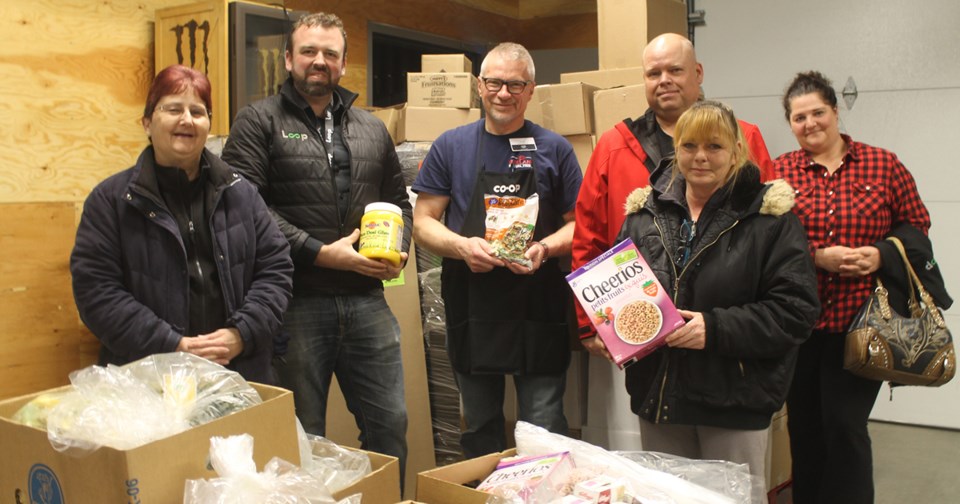TISDALE — The Beeland Co-op is working to reduce the amount of food thrown in the garbage by donating it to farmers.
Jamie White, trainer with Loop, a company that works to help grocery stores divert its food waste, said this way the waste can be made into good use for the community.
“Loop exists to take all the food that can’t be sold and doesn’t have a positive destination, and we work with charities, we work with small farms and we divert the food that can’t be sold whether it’s for quality reasons or dates,” White said.
Todd Svenson, general manager of the Beeland Co-op, said the co-op had been in touch with Loop back in February and have been working with them since.
“We were prepared to start the program on our own but Federated Co-op became involved in about May and they took over getting everything in place,” Svenson said.
The Beeland Co-op is one of a few co-op stores piloting this project.
“I think you’ll see this across all the co-ops here over the next few years.”
Under the new program, when the store is done with the product, the employees scan the would-be waste out of the system and place them aside. Once a day a local farmer comes to the store and picks up the packages.
Reena Carlson is a farmer from Reedan Ranch in Ridgedale, who has been previously involved with the program. Until now she would travel to Prince Albert once a week to get the food waste for her animals.
“I joined when P.A. started and we have the funny farm. We have goats, chicken, cows, pigs, cats and horses, and I hate wasted food so it worked really well to feed all the animals,” Carlson said.”
While she enjoyed the program, she quit last year due to the long drive each week.
Now she is returning to the program with Tisdale.
“We want to make sure we can do it cheaper than garbage,” White said. “As long as you’re cost positive of this and doing this for the environment and the community, it’s usually a soft start for most stores. They’re really excited.”
He said as a farmer himself, when he can supplement the protein for his animals it can save him some costs.
“It produces healthier food locally, and does it in a way that’s good for the environment. Landfills are declining in their lifespan and they’re eventually going to go away. What we want to do is support the values of co-op and the community by supporting small local agriculture.”
White said salad can go to pretty much any farm animal.
“In the cold winter months the coleslaw, macaroni and potato salads are very calorie dense and that helps keep body condition up on cold days.”
For his farm, fried chicken can go to barn cats.
“I got to pay them somehow, I don’t like mice or rats and I don’t have a huge budget for buying cat food. Our farm gets more cats moving in with us during the winter because the food is much better and we have no rodents while our neighbors struggle along.”
White said cereals, like Cheerios, can go to most animals.
“Everything loves Cheerios, let’s face it. You love Cheerios too. That would go to any animal that can successfully digest grains.”
He said an exception is high sugar cereals which would need to be rationed out and not given to animals prone to founder like horses.
“Chickens in general on my farm get the cereals.”
White said avocados are an interesting food because there are rumors that they’re poisonous to different animals – he said this is only partially true.
“You can feed up to 40 per cent dry rate ration avocado flesh without any ill effects,” White said. “The skin however is poisonous. If you grind up the skin you will create a possible toxicity situation for the animals. The same thing goes for the bits in a slightly smaller way.”
Grapefruits and other citrus fruits are mainly sheep and cows.
White said to join the program a signup form can be filled out at loopresource.ca or facebook.com/loopresource.
“We’ll get in touch with you as soon as a spot opens up in your area,” he said. “We’ll run you through the questionnaire, the legal form to make sure everything’s safe. Once you sign off for the insurance and legal paperwork we’ll get a spot with you and get you connected with the food that can’t be sold.”
The Beeland Co-op’s first day of the program took place on Nov. 22.



